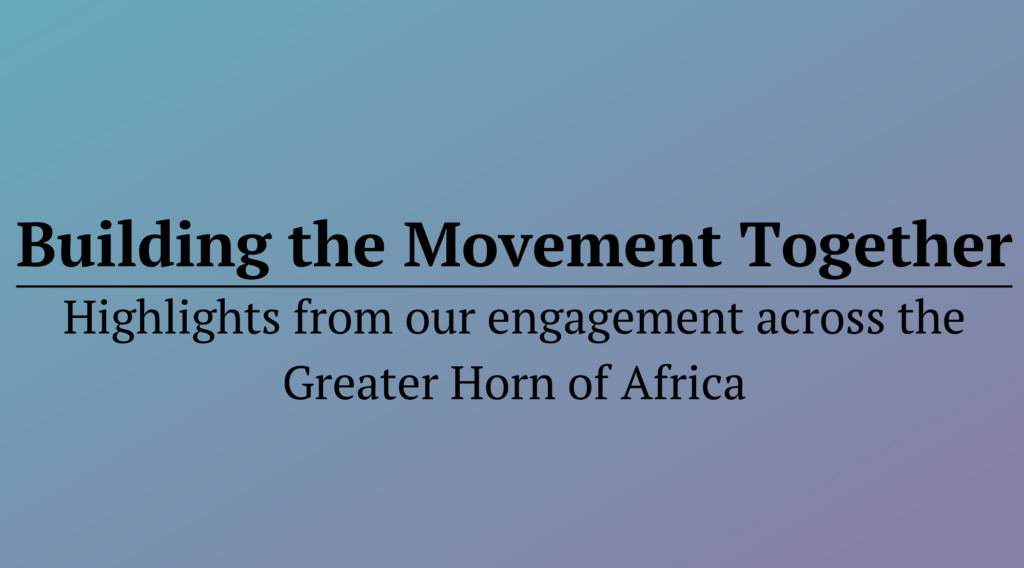
Women Peace Activists from Somalia and Sudan Convene to Build Solidarity
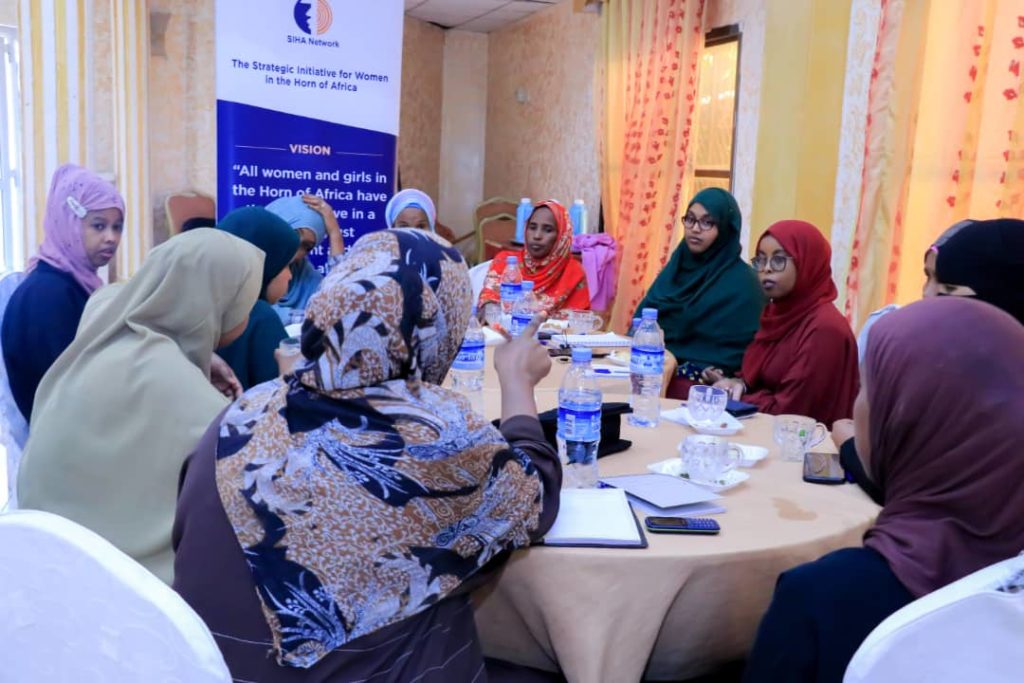
From the 12th to the 15th of December, SIHA hosted a convening of women peace activists through the support of the Irish Embassy to Sudan and Somalia. The primary goal of this meeting was to build regional solidarity and sisterhood between women peace activists from Somalia, Somaliland, and Sudan. The women who participated in the meeting shared challenges they face, ways to build inclusive sisterhood, why this is important for the movement, and aspects of women’s rights advocacy that are unique to this field in the contexts of Somalia and Sudan.
“My Sister my medicine” Creating Safe Spaces for Peer Learning and Experience Sharing among Adolescent girls in Ethiopia
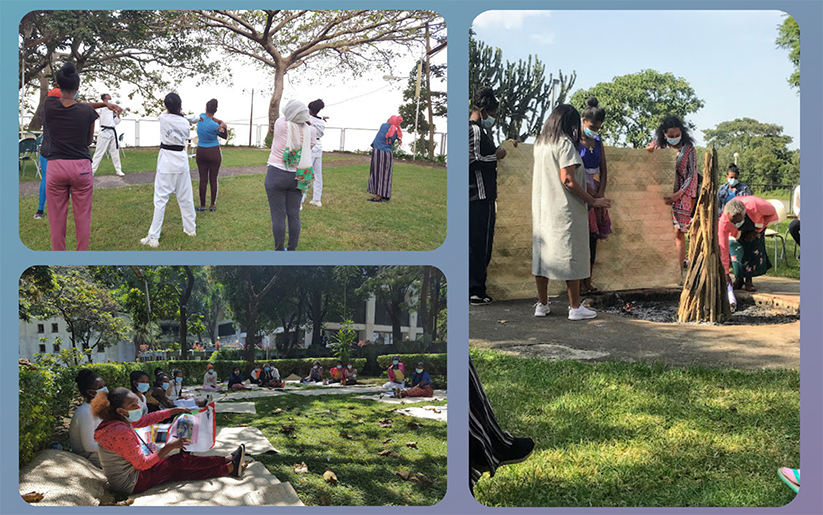
The SIHA inter-country girls camp aims to create a safe space and platform where adolescent migrant girls can learn, build skills, and heal together. 20 adolescent girls from Bahir Dar and Gondar were part of this retreat including two focal persons assigned to work as coordinators of the two teams from Bahirdar and Gondar. The activity took place in October 2021 under the theme እህቴ መድሃኒቴ “ehete medhanite” which translates to ‘my-sister-my-medicine,’ a phrase that we feel captures the whole purpose of the activity which was to stand together for each other.
Championing Women Market Vendors’ Demands Together
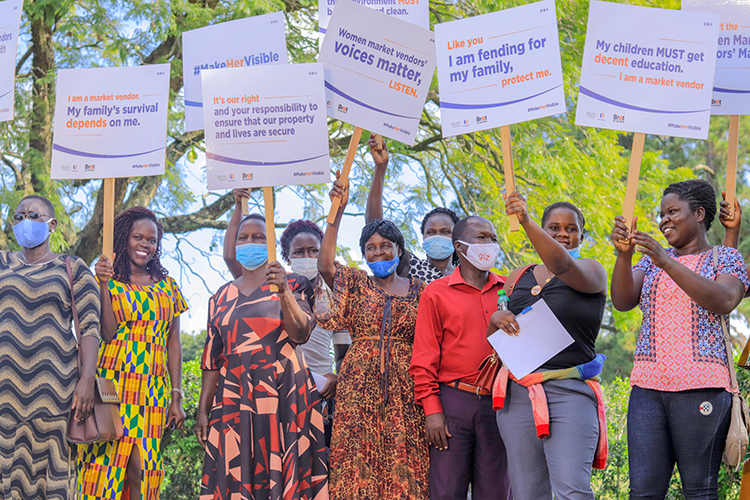
In January 2022 SIHA held a joint conference with Ugandan women market vendors’ cooperatives and Ugandan Women’s Network, Integrated Child Service, Social Action for Life Transformation (SALT), WINCARD, YWCONNECT. The conference aimed to popularize the market vendors’ manifesto, which demands an improved working environment for informal market and street vendors. The event fostered sisterhood across different elements of the movement for women’s rights in Uganda.
SIHA’s Annual Board Meeting
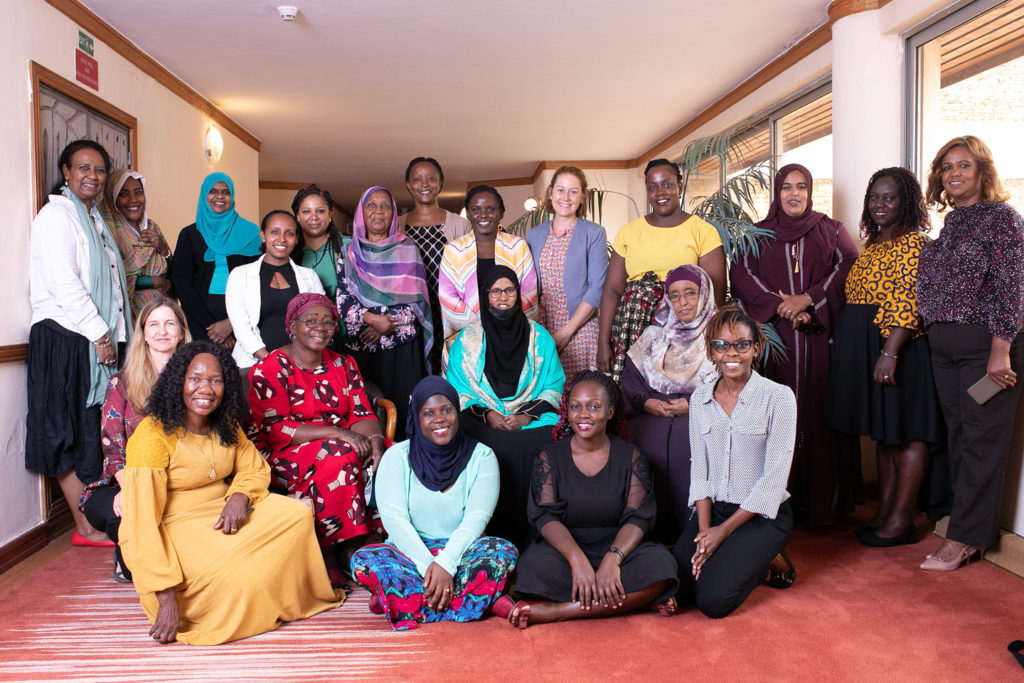
The in-person SIHA Board meeting, one of the two bi-annual scheduled meetings, happened without a hitch on the 29th and the 30th of March 2022. The board members were given detailed updates from the different SIHA departments regarding operations in the different countries of operation. The Board members shared updates on their country’s current situations, highlighting areas of progress and opportunities for SIHA to intervene and work. The two-day event was successfully concluded with a closed-door meeting that focused onboard business, introducing the new members, and an election for the different positions.
South Sudanese Women and Girls Demand Safety in their Schools and Communities
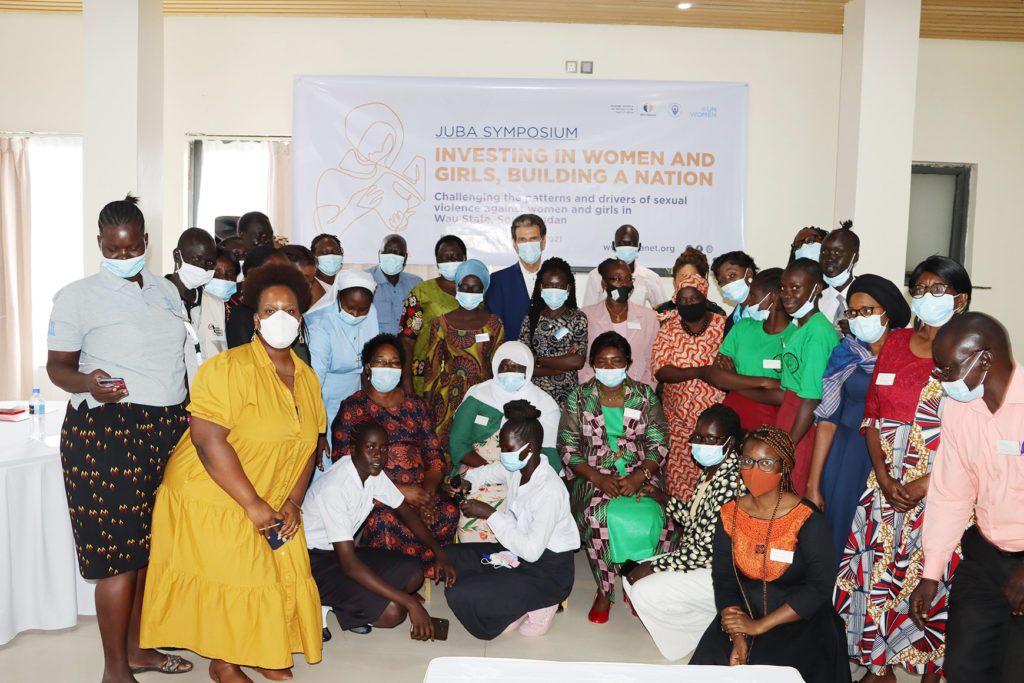
SIHA Network organized a two-day symposium in November 2021 in Juba, to increase knowledge and awareness on the relevance of creating a safe and conducive environment in schools and communities, for girls to pursue their education and bring an end to VAWG. The symposium was attended by representatives from the UN, Embassies, civil society, local government and ministries of Gender and Social Welfare, Justice, Culture, Youth and Sports and Interior as well as students from Mbili Loyola Wau complex and standard secondary schools. The event gave grassroots participants a platform to voice their experiences, recommendations, and demands.
Join the Committee! – A Campaign Encouraging Women’s Political Participation
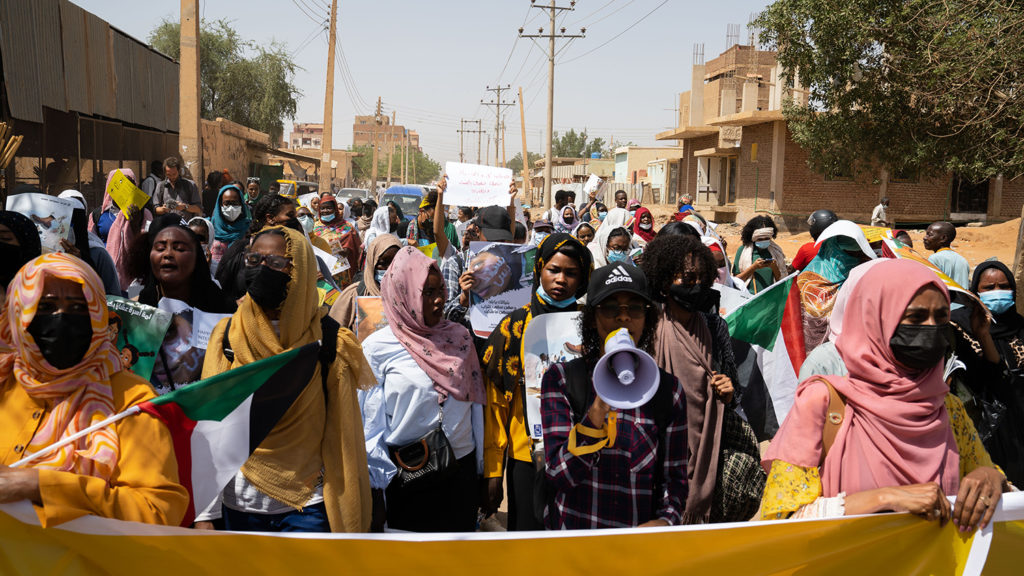
‘Join the Committee’ is a campaign advocating for women’s political participation and for peace. The campaign was conceptualized by the Midanik feminist movement group after the October coup in 2021. It was established to advocate for women’s equal role in restoring Sudan’s path toward democracy. The campaign works to increase the presence and influence of women at various levels of political decision-making by encouraging women’s participation in resistance committees and neighborhood committees as well as strengthening women’s capacities to overcome structural biases in political participation.
Joint Statement from SIHA and Partners in Ethiopia
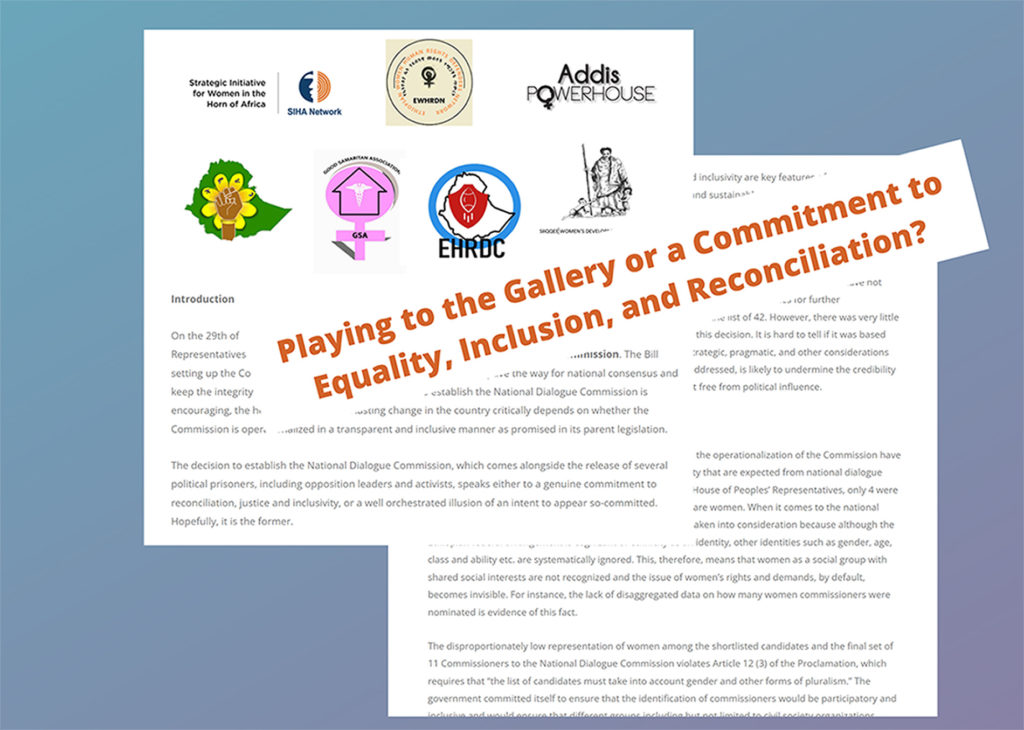
On the 29th of December 2021, the Federal Democratic Republic of Ethiopia’s House of Peoples’ Representatives approved the establishment of the Ethiopian National Dialogue Commission. Whilst the decision to establish the Commission is encouraging, the hope for positive and lasting change in the country critically depends on whether the Commission is operationalized in a transparent and inclusive manner as promised in its parent legislation. From a gender-informed perspective, the initial steps toward the operationalization of the Commission have not adhered to the principles of equality, fairness or inclusivity that are expected from national dialogue processes.
Joint Statement from SIHA and Partners in Ethiopia
On the 29th of December 2021, the Federal Democratic Republic of Ethiopia’s House of Peoples’ Representatives approved the establishment of the Ethiopian National Dialogue Commission. Whilst the decision to establish the Commission is encouraging, the hope for positive and lasting change in the country critically depends on whether the Commission is operationalized in a transparent and inclusive manner as promised in its parent legislation. From a gender-informed perspective, the initial steps toward the operationalization of the Commission have not adhered to the principles of equality, fairness or inclusivity that are expected from national dialogue processes.
PUBLICATIONS COMING SOON
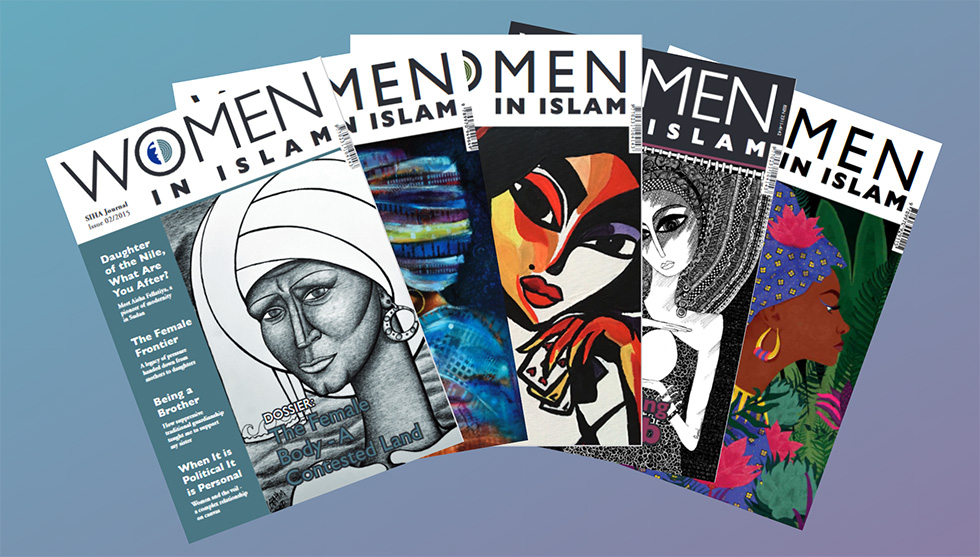
Women in Islam explores the complexities of gender relations in Muslim communities in the Greater Horn of Africa and beyond, engaging critically with conflicting perceptions of Islam in relation to women’s rights and equality.
Issue 6 weaves together a unique blend of essays, academic papers, opinion pieces, personal narratives, poetry, and artwork focused on the lived realities of women in Muslim societies.
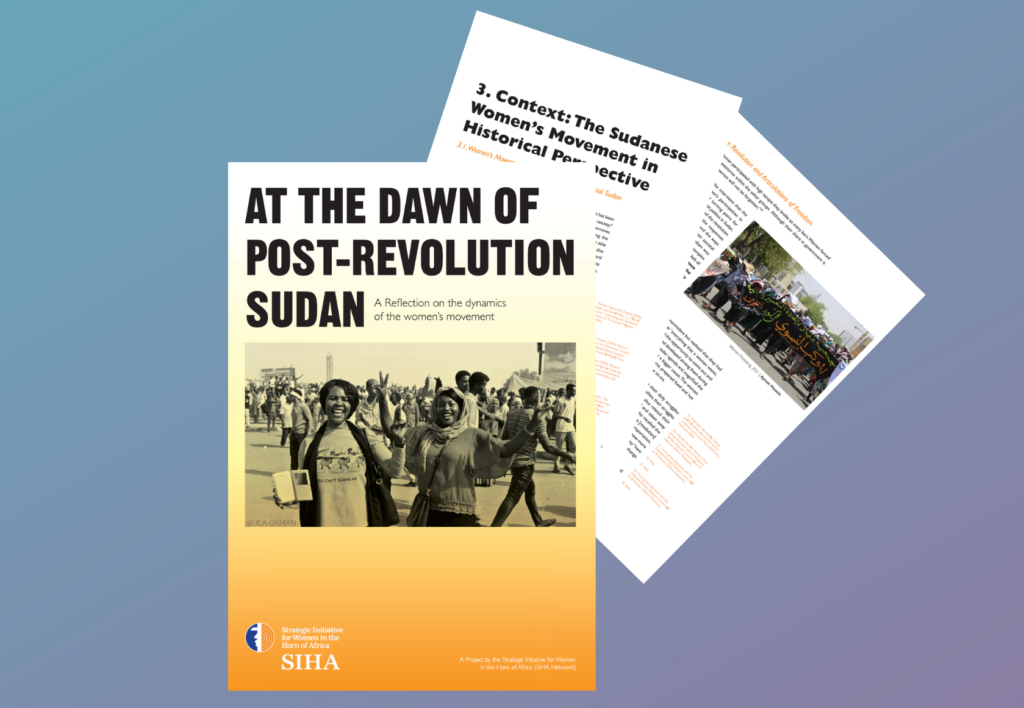
In early 2019 Sudan had been gripped by months of political turmoil that climaxed with the army overthrowing long-time dictator Omar al-Bashir on April 11th. The protests began in December 2018 with civilians decrying the shortages and economic hardships that had become increasingly unbearable for the citizens of Sudan. This initial trigger let loose an accumulation of grievances that had been growing in the country for decades and culminated in one of the most remarkable protests in recent times.
This intricate analysis of the women’s movement in Sudan highlights the role the Sudanese government has played in antagonizing the advancement of women’s rights, particularly in achieving an inclusive women’s agenda. It recognizes that it is high time that the Sudanese government and the ruling political institutions start creating a shift in their approach toward women’s rights and gender equality in Sudan.
